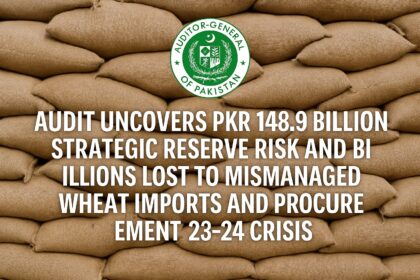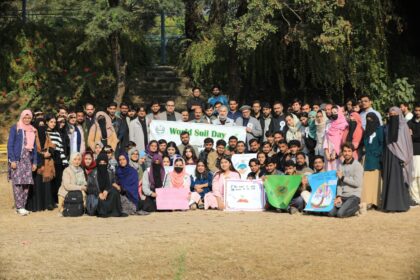A Senate committee has urgently called for comprehensive reforms of Pakistan’s science and technology institutions, highlighting decades of neglect, insufficient funding, and institutional paralysis. It also recommended immediate and strict action against dangerous consumer products, particularly tea-whitening products linked to serious health risks, including cancer.
Convened under the chairmanship of Senator Kamil Ali Agha, the Senate Standing Committee on Science and Technology strongly criticized the current effectiveness and operational capabilities of Pakistan’s key scientific research bodies. The committee was particularly critical of the National Commission for Science and Technology (NCST), a 26-member apex body established in 1984 under the Prime Minister’s leadership. Astonishingly, the NCST has convened only three meetings since its inception, with the most recent one held in 2001. Members expressed indignation at this prolonged and extraordinary neglect.
Compounding these issues, officials from the Pakistan Council for Science and Technology (PCST)—the secretariat responsible for supporting the NCST—noted a significant lapse in the appointment of scientists and industrial experts. It was revealed that no new appointments have been made since 2020, despite repeated correspondence between 2017 and 2023 urging action. Chairman Agha described the situation as “highly unsatisfactory,” questioning how the Commission could possibly function effectively without a fully constituted membership.
To rectify these failures, Chairman Agha directed the urgent creation of a working committee tasked to revive and re-energize the NCST and PCST within 15 days. Rejecting any suggestion of dissolving these entities without a proper strategic roadmap, he firmly stated, “There is a building, the institution exists—keep working!” He emphasized the necessity of restoring functionality and purpose to existing institutions rather than abandoning them.
The committee also addressed the chronic underfunding plaguing Pakistan’s science and technology sector. Ministry representatives confirmed that a mere 0.16 percent of GDP is invested into science research and development. This year, only Rs 4.5 billion has been allocated, a figure universally criticized by the members. The committee voiced concerns that inadequate resources and obsolete infrastructure continue to hinder scientific advancement, despite the country having excellent scientists and researchers.
Senator Dr. Afnan Ullah Khan highlighted the necessity of fostering long-term vision and prioritizing innovative and emerging technologies. He referenced China’s ambitious initiative to launch a solar power plant into space by 2028, urging Pakistan’s policymakers to invest appropriately in solar technology and public awareness initiatives. According to Senator Khan, closing the widening technological gap with developed nations requires immediate action and strategic investment in high-potential areas.
A significant portion of the session focused on consumer health and product standards. During a review of the Pakistan National Quality Policy (PNQP) 2021, Senator Khan raised alarms over widely used tea-whitening products—artificial cream powders mimicking milk—which pose severe health risks, including cancer. The Ministry’s Joint Secretary agreed with these concerns, openly acknowledging the dangers and endorsing the committee’s call for a decisive response.
Unanimously calling for enhanced regulatory oversight, the committee demanded a complete ban on these hazardous products, enforced closure of responsible companies, and stronger governmental control measures. The Ministry pledged to deliver a detailed update alongside a comprehensive enforcement strategy in their next meeting.
Closing the session, Chairman Agha underscored the critical importance of PCST and NCST. He warned: “PCST and the National Commission are important institutions. Without them, the ministry will come to a standstill.” The committee reaffirmed its commitment to reversing decades of institutional neglect, promoting scientific advancement, and safeguarding public health by holding negligent corporations accountable.











